The furious and tragic Muru has arrived on Neon, and is must-see viewing
Who do you serve and just what does that protect? This essential local film led by Cliff Curtis asks the question.
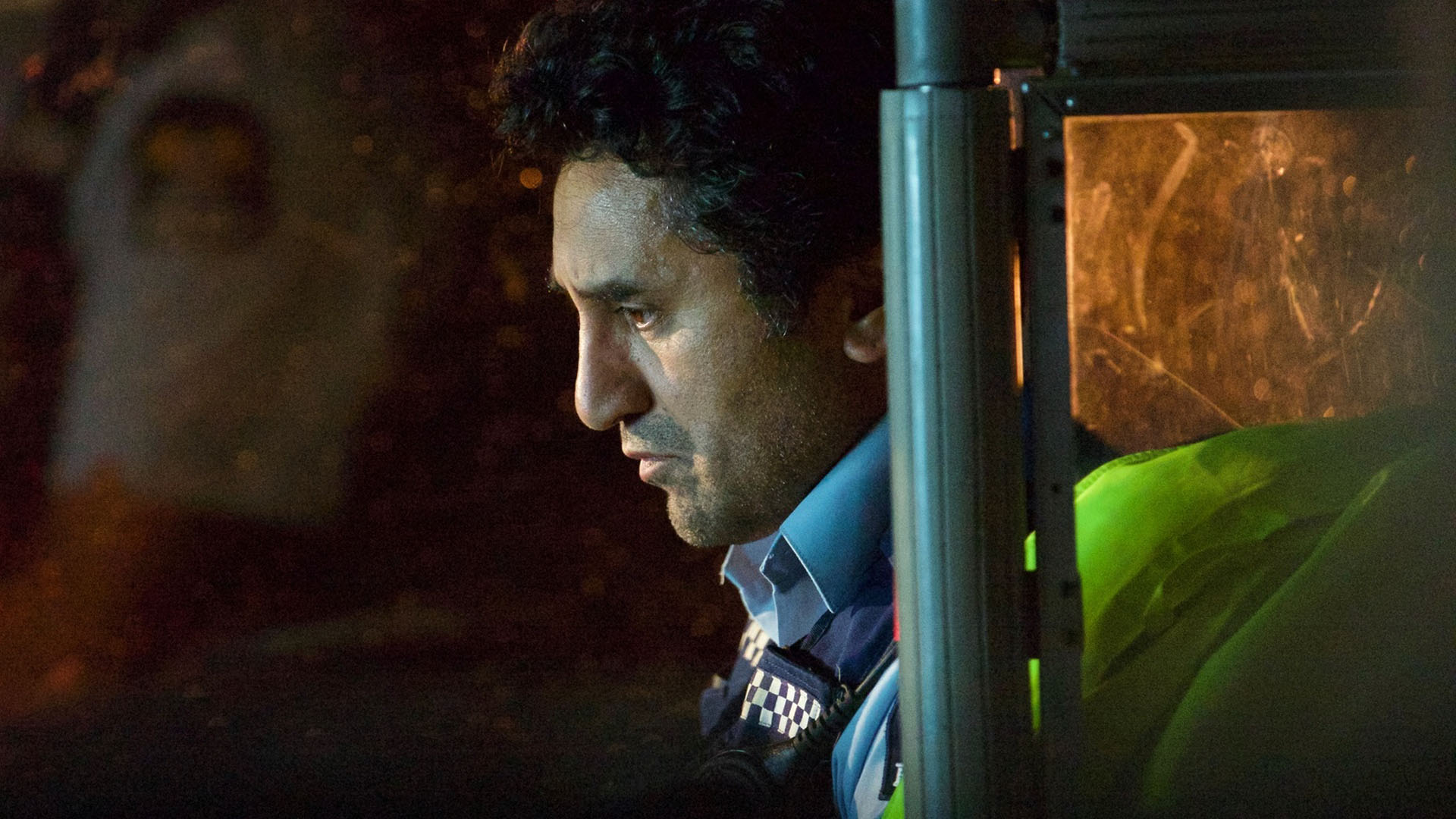

Joining the ranks of great Aotearoa films last year was Tearepa Kahi’s furious and tragic Muru – streaming on Neon. Steve Newall reflects on his experience watching the film at its world premiere and why it’s a must-see.
The world premiere of Muru last year doubled as the opening night of Whānau Mārama: New Zealand International Film Festival. When the lights came up at Tāmaki Makaurau’s magnificent Civic, the audience was shaken—if there was a dry eye in the house, I didn’t spot it.
Before the film, filmmaker Tearepa Kahi had explained more about how Muru was a ‘response’ to 2007’s heavy-handed police raids on Tūhoe. And, according to its opening text, “the views and accuracy of the information contained in this production are not endorsed or supported by the New Zealand Police.” Which drew knowing laughs from the crowd…
Then, after a mist-drenched opening in the hills of Te Urewera, and as the techno-thriller militaristic boys’ toys of the state—surveillance tools, automatic weapons, laser sights—are deployed, Muru’s mission statement is explained in a series of title cards.
“In 1916, the NZ Government raided the people of Tūhoe and their prophet Rua Kēnana” says the first. The second tells us: “In 2007, the NZ government raided the people of Tūhoe and the activist Tame Iti.” The third introduces the film’s M.O.—“This film is not a recreation of the police raids against the people of Tūhoe”—and after a pause, the fourth confirms it: “He whakatau kē – It is a response.”
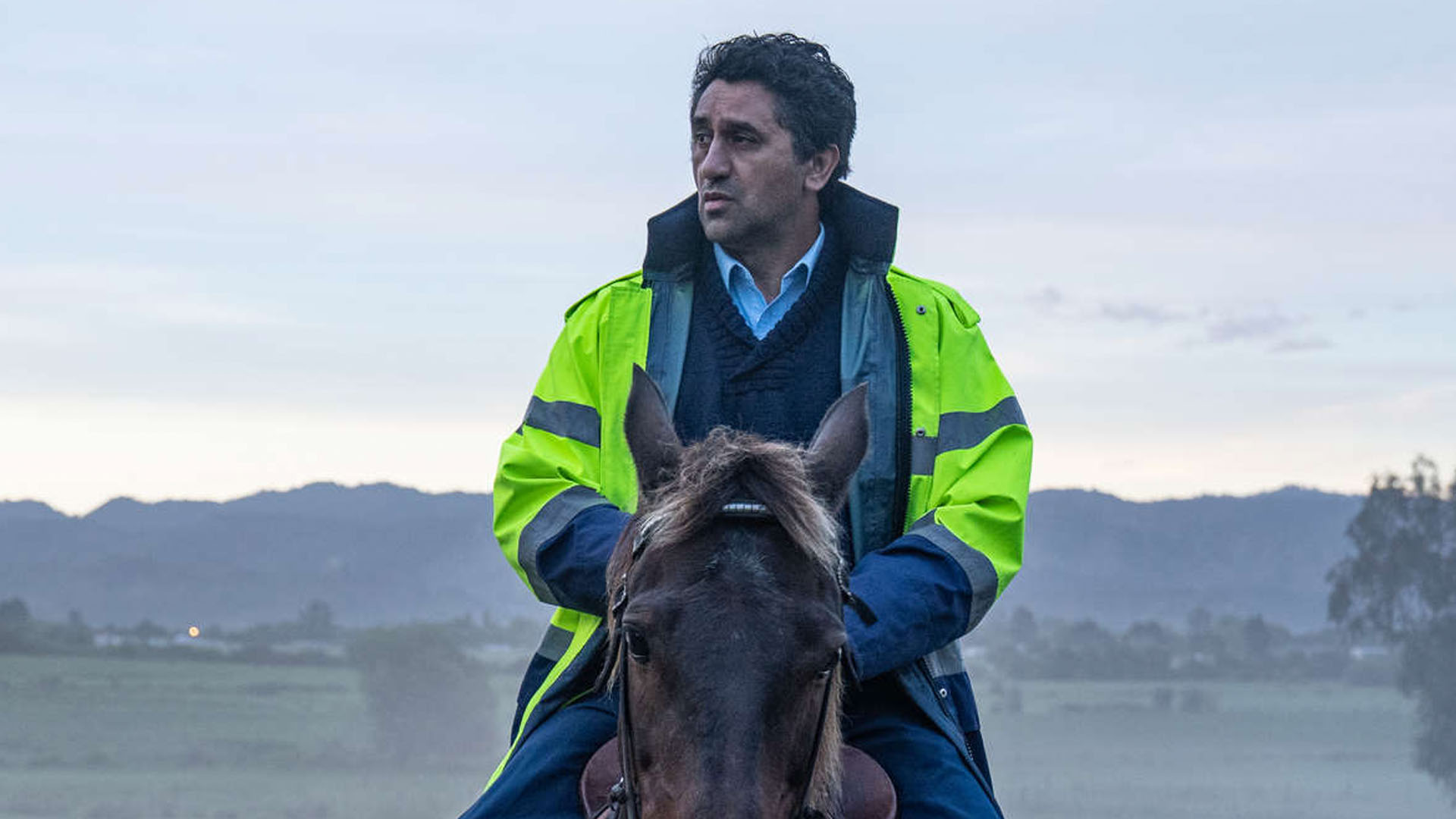
Even with this foreknowledge, the audience perhaps wasn’t completely prepared for Muru’s scope. Rather than buying itself room for dramatic license or to conform to filmmaking conventions, as seen with other films ‘inspired by a true story’, Muru’s reframing of its subject matter doesn’t just allude to comparisons between the events of 2007 and a history of colonial oppression—it allows Kahi to bring a century of that oppression (and more) to the screen.
Context and subtext behind real events become text outright as we are confronted with perhaps unexpected topics, such as the police killing of Stephen Wallace in the main street of Waitara in 2000, or the fetishisation of the military (and what I also took as questioning of the lionisation of Māori VC winner Willie Apiata). As the film led me to recall the tragic fate of Wallace, I remember thinking “Oh, this is about everything.”
In drawing on the strengths of both fact and fiction, weaving realities together in search of a deeper meaning, Muru is an exceptional hybrid of narrative filmmaking. Kahi brings a living, breathing Tūhoe community to the screen, capturing the landscape through the gorgeous cinematography of Chris Mauger and the iconic Fred Renata. And his cast pours expansive life into their characters—whether that’s actors like Cliff Curtis, brilliant here as small-town cop Sergeant ‘Taffy’ Tawharau, trying to ensure the safety of the community he protects, or in the inspired casting of Tūhoe activist Tāme Iti playing suspected terrorist… Tāme Iti.
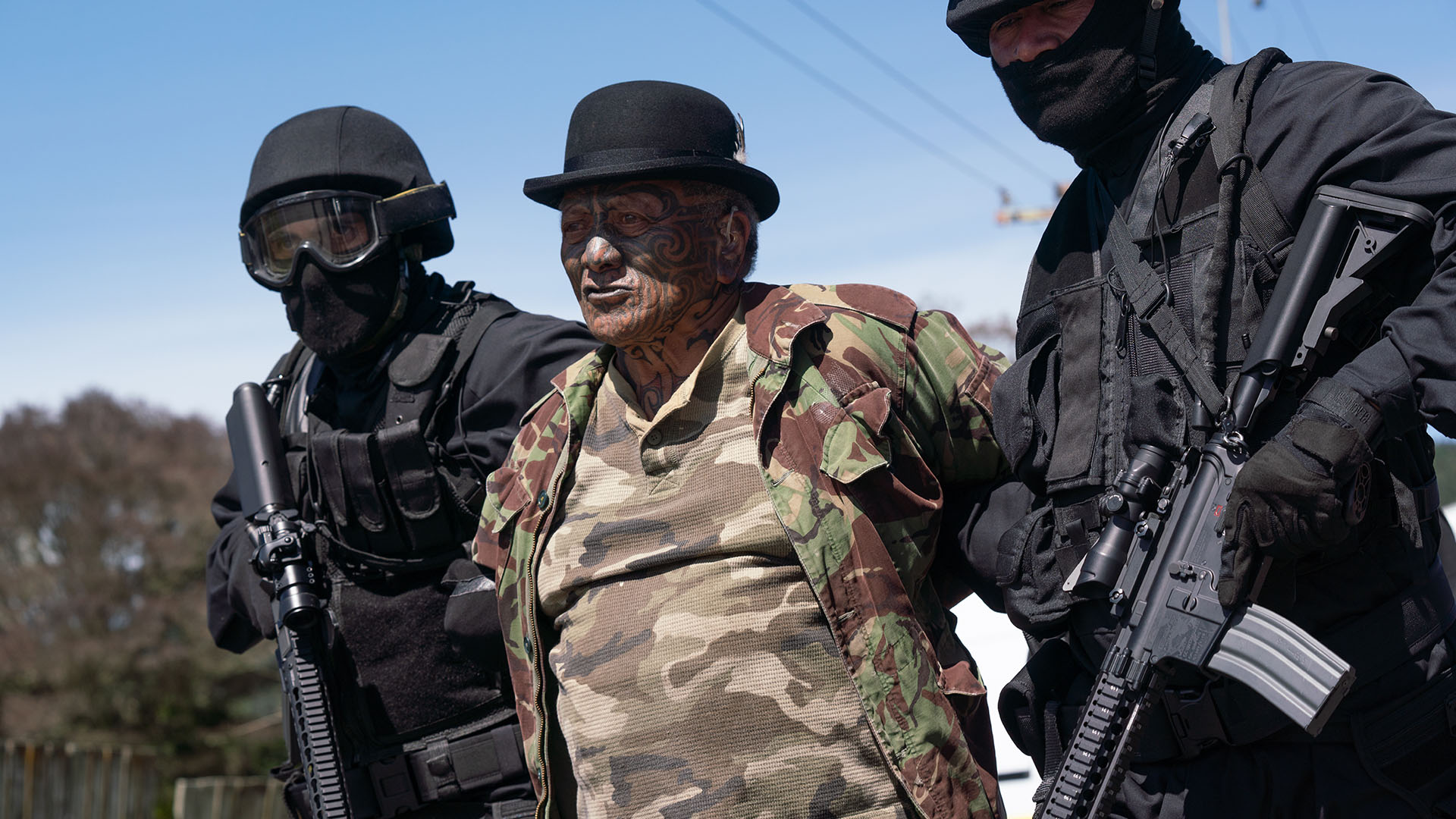
Grounded in histories plural, and feeling like it exists in its own present reality, Muru also uses its license to depart from recreation to examine the possible consequences of the past. As events on screen take on a more tragic dimension to those of 2007, police heavyhandedness escalating in sadly believable fashion, the audience is confronted by the realisation that Muru’s story can and will go in any direction—part of Kahi’s ‘response’ being a warning: didn’t authorities realise how badly their heavy-handed actions could have gone?
I described the film as “A gutpunch warning about never repeating past mistakes,” in my impressed mini-review after the world premiere, noting the chilling moment as Muru’s scope was revealed mid-film. Other Flicks writers covering the festival were uniformly impressed.
“A bold and electrifying exploration of the ways narrative storytelling can illustrate big truths without the limitations of documentary filmmaking,” wrote Rachel Ashby after the screening (Ashby would go on to make more detailed observations in a full-length review accompanying Muru‘s general release). “It’s moving, gentle, tense and ferocious all at the same time. The possibilities it opens for the ways we think about trauma and history are vast. It’s also a killer action film. Honestly still trying to process this one, you just gotta go see it.”
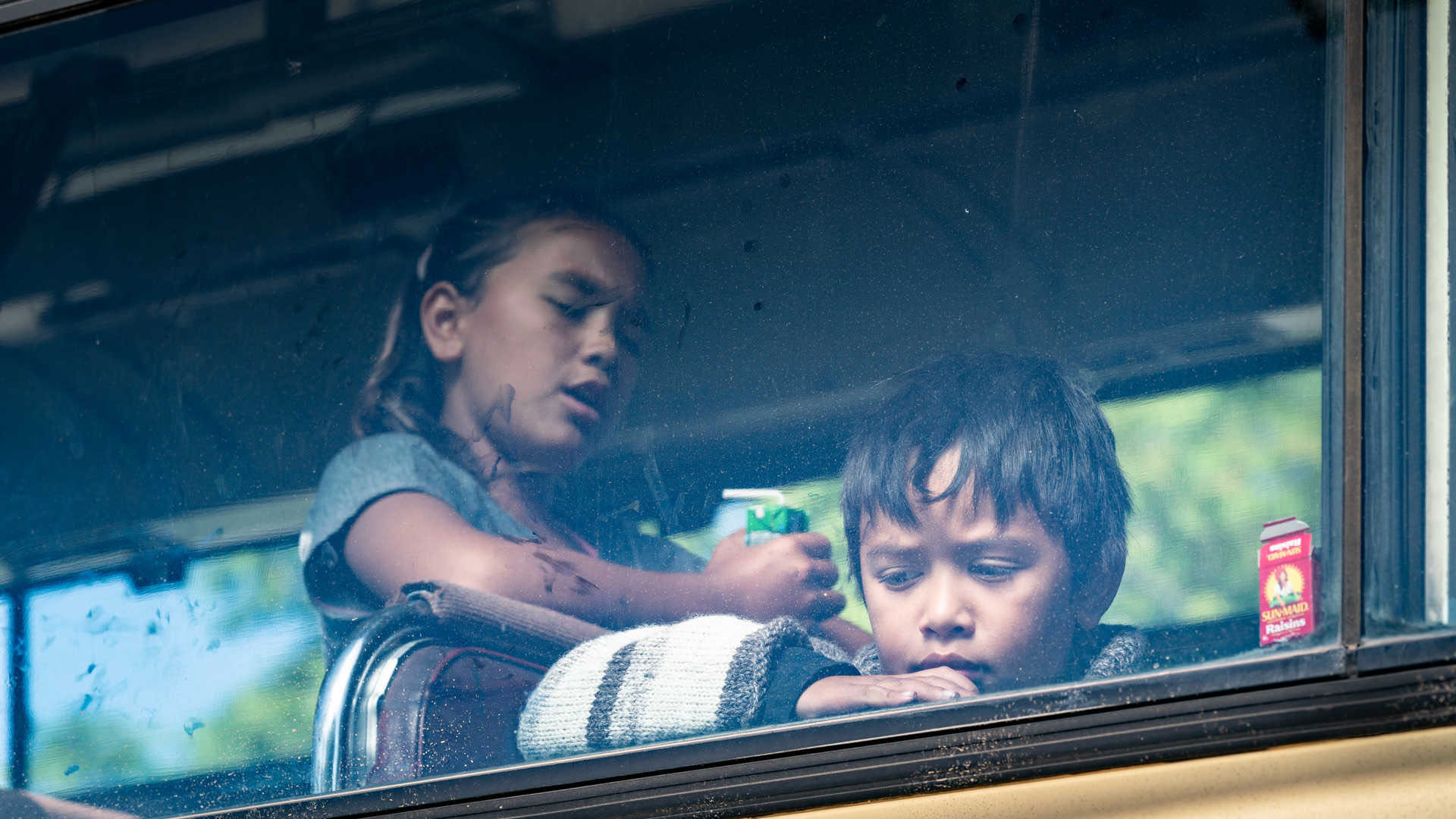
“Director Tearepa Kahi makes good on the promise of past movies Poi E, Herbs, and Mt Zion, with a powerful tale recounting the 2007 Urewera raids,” said Adam Fresco. “A searing indictment of state violence, ingrained racism, and blinkered bureaucracy, Muru is anchored by a terrific cast, including Cliff Curtis as a local police officer caught between whānau, work, personal morality, and public duty. The bold casting of alleged “terrorist” Tame Iti as himself hits home, in a film that works as both a condemnation, and an escalating drama of violence, thanks to time invested in creating characters rather than clichés at the centre of a tragic action drama ripped from reality.”
And, as Sarah Thomson observed: “Tūhoe has long stood mana motuhake and has, for just as long, faced post-colonial Crown retribution for that autonomous stance. Tearepa Kahi’s film Muru establishes that it seeks not to reconstruct such retributions, but instead reframe them in a fictional narrative still inspired by true events. A truly beautiful, gut-wrenching film containing stunning performances (including Tūhoe activist Tāme Iti playing themselves), Muru pits a cast of characters who whakapapa Māori against one another—whether they be ‘anti-terrorist’ Special Tactics Group; NZ Police; or Tūhoe Nation—and asks the question: who do you serve and just what does that protect? An essential film.”
After its Whānau Mārama: New Zealand International Film Festival screenings, Muru traveled to the Toronto International Film Festival, where it received generally favourable notices. For RogerEbert.com, Brian Tallerico praised Muru as “An accomplishment in tension, courtesy of a propulsive pace from Kahi,” while Jared Mobarak’s review for FilmStage is accurately titled Muru is a Justifiably Angry Depiction of New Zealand’s Inherent Racism.
Elsewhere, Britany Murphy would write for Geeks of Color: “One of the most important films screened at TIFF this year, Muru, is a must-see film for everyone,” and Christopher Cross correctly observed for Tilt Magazine: “To pretend that bygones remain in the past is demonstrably naive and it’s through the intensity and incendiary tone of Muru that open wounds fester without the opportunity to heal.”
The fact that international critics got what Muru was about felt like a fitting precursor to the film’s submission as New Zealand’s contender for the 2023 Academy Awards Best International Feature Film category. When this news was announced, Muru had gone on general release in cinemas around Aotearoa, where it held the #1 position at the box office for two weeks.
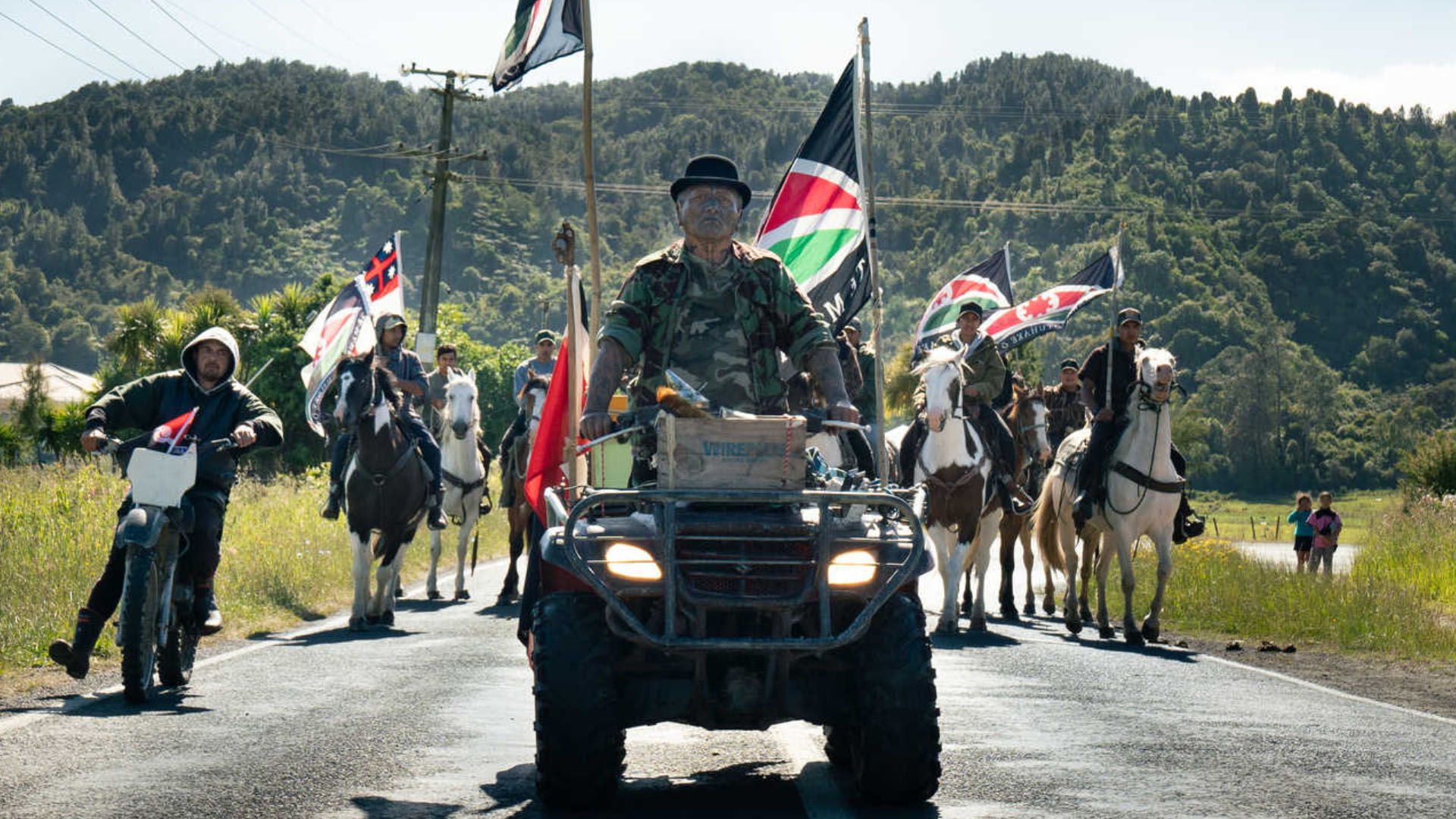
Formerly known as Best Foreign Language Film, this Oscar category is made up of nominees produced outside the United States with a predominantly non-English dialogue track. Stemming naturalistically from its characters and setting, Muru qualified with a majority of its dialogue in Te Reo, an impressive facet of the film that was welcome to see, but through Aotearoa’s normalisation of language use almost went unremarked in its local release.
Unfortunately, Muru wasn’t successful in gaining a nomination—the films competing this year are All Quiet on the Western Front (Germany), Argentina, 1985 (Argentina), Close (Belgium), Eo (Poland) and The Quiet Girl (Ireland).
But the film’s journey is far from over. With an impressive Aotearoa box office total of over $1.5 million and after a sturdy number of online rentals, Muru has now arrived for streaming on Neon, where fresh audiences can discover Tearepa Kahi’s singular film. And, hopefully, Muru can continue to speak for years to come, as part of our vital and ongoing conversations about racism and oppression in Aotearoa New Zealand.























